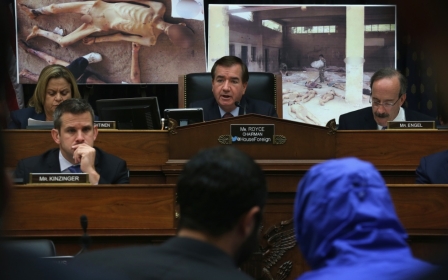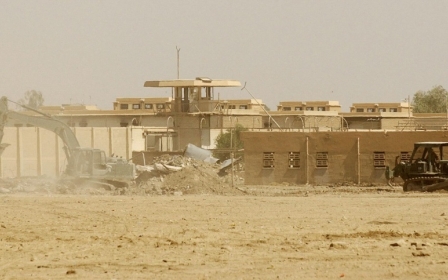Rights abuses fuel the rise of IS militants, warns HRW report

Human Rights Watch warned governments on Thursday that abuses fuel crises in world trouble spots like Syria.
"Human rights violations played a major role in spawning or aggravating most of today's crises," argued Kenneth Roth, director of the US-based watchdog, as HRW unveiled its annual report.
Even as it seems that "the world is unravelling," he warned, many governments "appear to have concluded that today's serious security threats must take precedence over human rights.
"In this difficult moment, they seem to argue, human rights must be put on the back burner, a luxury for less trying times," Roth said, introducing the 660-page HRW World Report 2015.
Such a calculation is false, Roth insisted.
Sectarian policies of Maliki
Instead, he argued that "human rights are an essential compass for political action" and shelving them is "not only wrong, but also shortsighted and counterproductive."
From Iraq to Syria, Egypt, Nigeria and Ukraine "protecting human rights and enabling people to have a say in how their governments address the crises will be key to their resolution."
The emergence of the Islamic State (IS) group was in part fuelled by the 2003 US-led invasion of Iraq, and also by the West's failure to address atrocities in Syria.
The Iraq invasion led to a security vacuum and abuses in Abu Ghraib prison and Guantanamo Bay.
Later the United States and Britain "largely shut their eyes" to the sectarian policies of Shiite prime minister Nuri al-Maliki and his persecution of the Sunni community, and even continued to ply his government with arms.
Assad's the 'slaughter of civilians'
In Syria, the US cobbled together a 60-strong coalition to combat the IS militants, but no nations have stepped up pressure on President Bashar al-Assad "to stop the slaughter of civilians."
Speaking to AFP in Beirut, where HRW presented its report, Roth said: "The West is not going to succeed in stopping ISIS if it allows ISIS to say that it's the only one trying to stop Assad's barrel bombs."
He used the acronym ISIS to refer to the Islamic State (IS).
This same selectivity has been shown in Egypt, where the global response to "unprecedented repression" by general-turned-president, Abdel Fattah al-Sisi, has been "shamefully inadequate."
'Disaster for the Egyptian hopes'
Washington shied away from denouncing the Egyptian military's overthrow of elected Islamist president Mohamed Morsi in a coup.
In this, it was driven by its own concerns for the security of the unruly Sinai peninsula and neighbouring US-ally Israel.
Support for the Sisi leadership is "a disaster for the Egyptian hopes of a democratic future" and sends "an appalling message to the region."
"ISIS can now credibly argue that violence is the only path to power for Islamists because when they sought power through fair elections and won, they were ousted with little international protest," Roth said.
Stay informed with MEE's newsletters
Sign up to get the latest alerts, insights and analysis, starting with Turkey Unpacked
Middle East Eye delivers independent and unrivalled coverage and analysis of the Middle East, North Africa and beyond. To learn more about republishing this content and the associated fees, please fill out this form. More about MEE can be found here.




